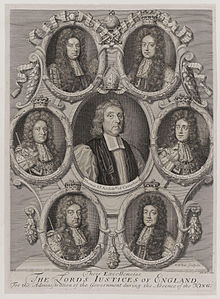
Excellency is an honorific style given to certain high-level officers of a sovereign state, officials of an international organization, or members of an aristocracy. Once entitled to the title "Excellency", the holder usually retains the right to that courtesy throughout their lifetime,[1] although in some cases the title is attached to a particular office and is held only during tenure of that office.[2]
Generally people addressed as Excellency are heads of state, heads of government, governors, ambassadors, Roman Catholic bishops, high-ranking ecclesiastics, and others holding equivalent rank, such as heads of international organizations.[3] Members of royal families generally have distinct addresses such as Majesty, Highness, etc..
While not a title of office itself, the honorific Excellency precedes various titles held by the holder, both in speech and in writing. In reference to such an official, it takes the form His or Her Excellency; in direct address, Your Excellency, or, less formally, Excellency. The abbreviation HE is often used instead of His/Her Excellency; alternatively it may stand for His Eminence.
- ^ "Forms of Address". Garza Protocol Associates. 22 March 2017. Retrieved 9 June 2021.
- ^ Protocol - The Complete Handbook of Diplomatic, Official, and Social Usage (page 21), by Mary Jane McCaffree and Pauline Innes, published by Hepburn Books, Dallas, Texas [1] Archived 1 March 2012 at the Wayback Machine, 1977, 1985, 1989, 1997 ISBN 0-941402-04-5
- ^ "Heads of state, heads of government, ministers for foreign affairs" (PDF). Protocol and Liaison Service. United Nations. 24 August 2016. Archived from the original (PDF) on 5 September 2024. Retrieved 9 June 2021.